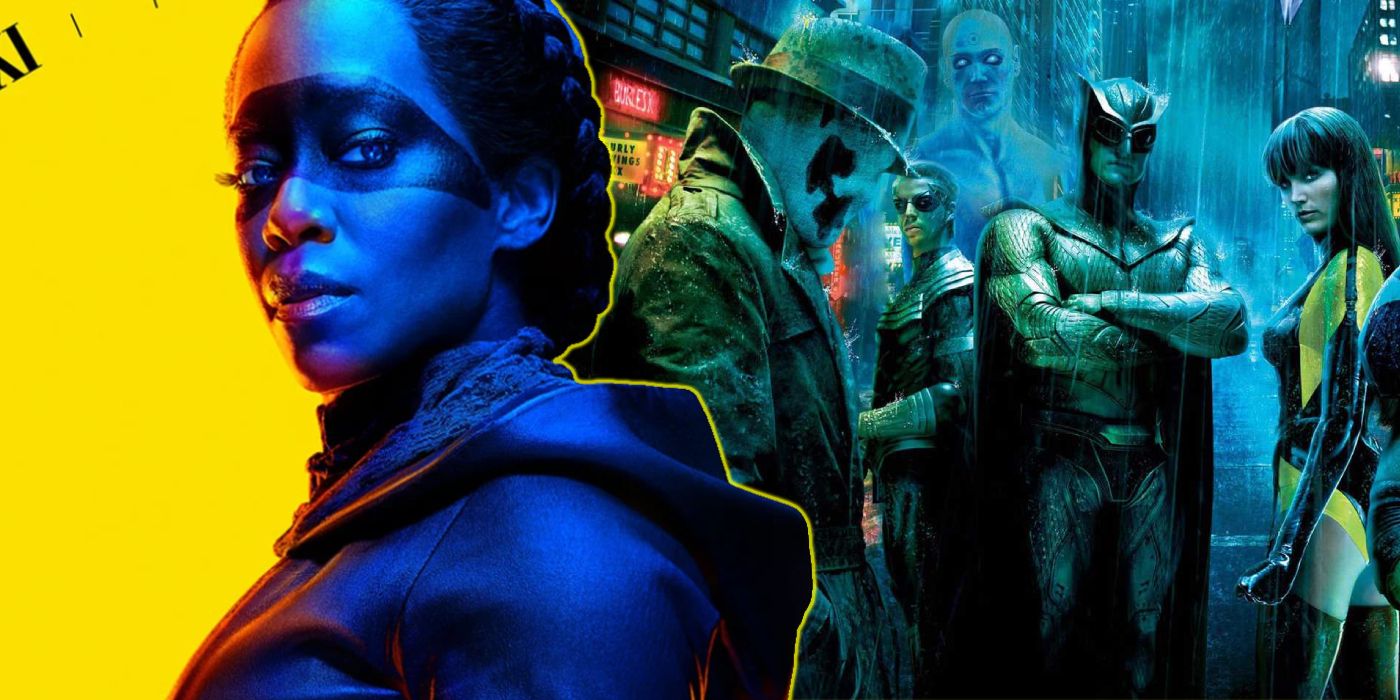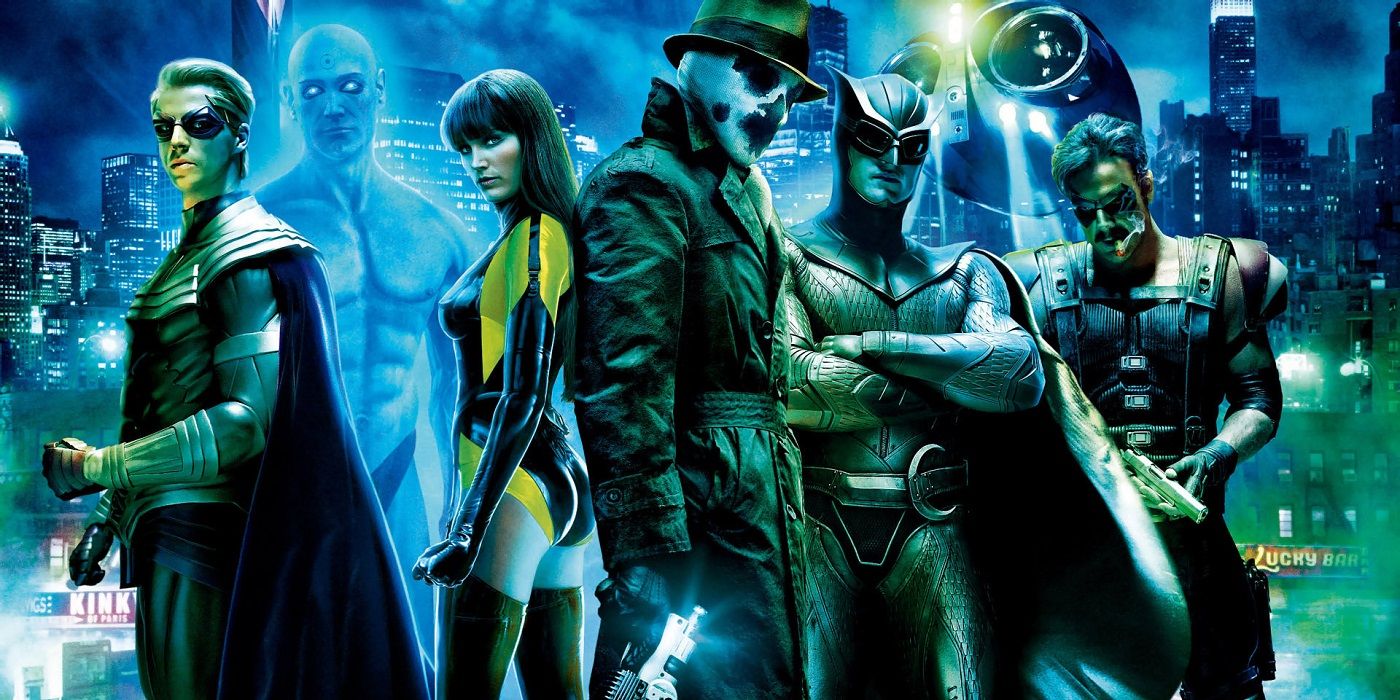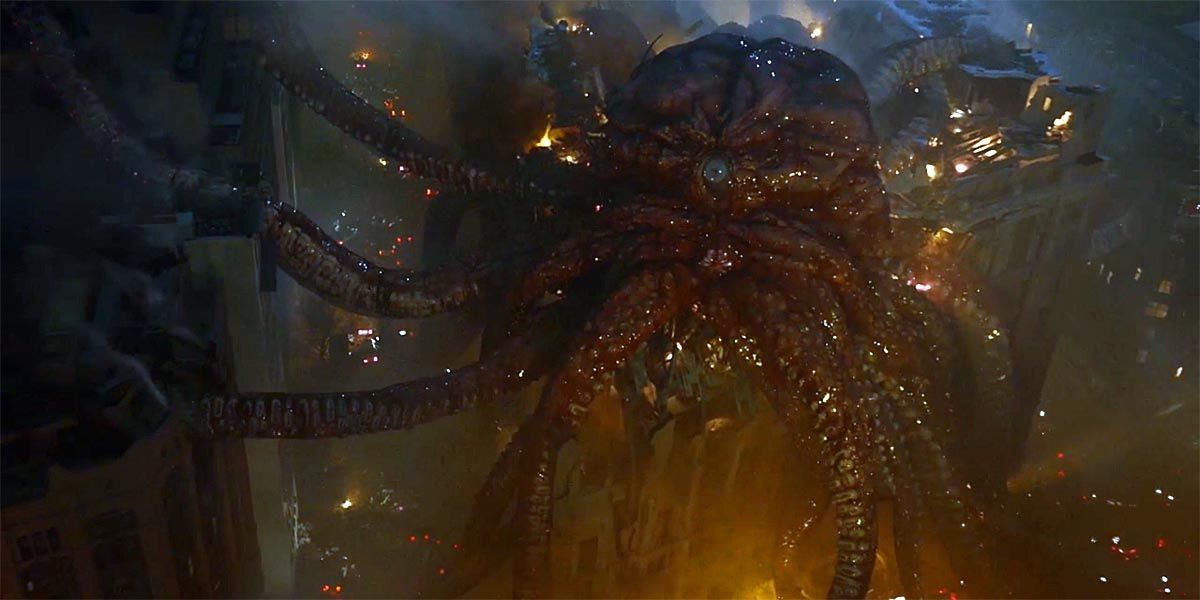The first, and potentially only, season of HBO’s Watchmen is over and it’s difficult to think of how it could have been any more gratifying. Damon Lindelof and his writers gave the height of their creative stamina to this project, remarkably recapturing the ethos of the beloved comic while also doing something completely different with it. For that reason, now a decade after the release of Zack Snyder’s polarizing film version, we can immediately say that this Watchman was a more faithful one to the original source material.
While we have already discussed how the HBO series is better than Snyder’s 2009 film, we haven’t quite touched on why this more recent TV series is also more complacent in tone and aesthetic to Alan Moore and Dave Gibbons’ vision. On one hand, it seems erroneous to refer to Lindelof’s Watchmen as an adaptation, as it is a direct sequel to the comic, set within the same continuity (Lindelof has even referred to his series as a "remix"). Still, it must not be dismissed how parallel the show is to the comic, both in that it acts as a dark mirror to our contemporary reality, as well as having an intrinsic understanding of what made the book’s narrative have weight.
To be fair, the main issue with Zack Snyder’s film was something that no other filmmaker could ever really solve: the comic book doesn’t lend itself to be directly adapted into a feature film. The 12-issue maxiseries made the most of its medium by incorporating a slow-burn narrative that also catered to strategic world-building. Also of importance, each issue of Watchmen was incorporated with back-matter text that helped flesh out this alternative reality, and how it compared and contrasted with our own. Not only does a film adaptation of Watchmen feel relegated to omit this prosaic content, but a feature-length running time (even at 163 minutes) just isn’t enough to satisfyingly convey the book’s carefully constructed arc, and the movie’s narrative felt constrictive as a result.
Lindelof’s medium is the inverse, allowing for the gravitas and momentum that existed in the comic. Over the show’s nine episodes, Watchmen is fully unpredictable and exciting and expresses its social commentary through similar avenues as the book. Also through strong world-building, Lindelof allows viewers a look into a world that’s different-yet-indifferent from our own, accompanied by motifs that definitely strike a chord with today’s headlines. From racial tension to the potential for a second American Civil War, it’s a very harrowing time for the U.S., which the show makes allusions to in intelligent ways that mesh with the mature use of pulp tropes. Alan Moore had clearly intended for Watchmen to encapsulate the apocalyptic tension of the Cold War, and this series does the same, but with a more contemporary zeitgeist.
Furthermore, this series even found a clever way to incorporate an element of the book’s world-expanding back matter that also took advantage of the week-long gaps between episodes. Through an online resource called Peteypedia (found through the HBO website), fans could read database collections from series character Dale Detey, an FBI agent with a vested interested in masked vigilantes. The weekly-updated entrees covered everything from criticizing a tactless presentation on sexual assault in the in-universe television show American Hero Story (possibly a clandestine shot at Snyder's film), to posing theories on Lady Trieu’s origin, and even mapping out different genres of fiction that came to be in the Watchmen world. These articles tended to be fun, and buoyed by the wit and relevance that Moore’s writing carries.
Many pundits had also said another barrier towards making a good Watchmen film was simply that the comic’s complex storytelling designs just couldn’t work on celluloid. In several ways such claims are agreeable, especially when in regard to Dr. Manhattan, the omniscient super-being who had a non-linear view of time, and this was visually communicated through the book’s use of grid-like panels. Still, Lindelof’s team even found a way to make this work for the television-landscape, with a brilliant episode that is indeed told from Dr. Manhattan’s peripheral.
Incorporating a thoughtful script meshed with a fluid editing job and pristine direction, the episode, "A God Walks Into Abar," found innovative ways to display the character’s optical, and it carried such an ethereal beauty to it that it’s difficult to think that even Alan Moore (a vocal detractor towards film adapatation of his work) wouldn’t scoff at it. Zack Snyder’s attempt on the other hand… Wait, did he even really try?
Lastly, we must press on how the show features an element from the comic that the film all but removed: The Giant Squid. The book’s final chapter, of course, sees the impetus of Ozymandias’ plan to save humanity: by unleashing a Cthulu-esque monster onto Manhattan, killing three million people, and ultimately allowing the world’s nations to join forces so they can unite against an enigmatic threat. Snyder decided to do without the giant monster, perhaps feeling it looked dated, and instead replaced it with a giant explosion that is allegedly caused by Dr. Manhattan.
This is problematic for two reasons. For one, we don’t get to see the carnage in the monster’s wake this way, lessening the impact that Ozymandias just committed an unspeakable act, even though it was through an ends-justifies-the-means scenario. Furthermore, it’s harder to swallow that all the nations in the world would unite if Dr. Manhattan was considered the culprit, especially as he had served the American government beforehand.
Not only does the show return the squid to canon (as seen in the opening for the episode “Little Fear of Lightning,” which also eclipses the climax of the film), but it also has a very powerful and unexpected conclusion. The last episode brings its myriad of characters and subplots together, as once again the world seems to be facing another catastrophic event. One would think that all the elements would be nigh impossible to juggle, but this show succeeds here as well, and thankfully ends on a hopeful note. While Moore brought his story to a bit more of a caustic end, Lindelof sees more chance for progression, and the enigmatic final shot is as much an honor to the comic as anything else in the series.
We’ll have to wait and see whether this really is all we'll get of Lindelof's Watchmen, but we can rest assured that after over three decades, we’ve finally received another Watchmen property that is as satisfying and paramount as the original. Snyder’s mediocre-at-best film adaptation just didn’t understand the source material, while Lindelof’s series succeeds by having a fidelity to the original, while also having the fiery passion to experiment. It feels great that this generation finally has its own Watchmen, as well.
Developed by Damon Lindelof, HBO's Watchmen stars Jeremy Irons, Regina King, Don Johnson, Tim Blake Nelson, Jean Smart, Louis Gossett Jr., Yahya Abdul-Mateen II, Tom Mison, James Wolk, Adelaide Clemens, Andrew Howard, Frances Fisher, Jacob Ming-Trent, Sara Vickers, Dylan Schombing, Lily Rose Smith and Adelynn Spoon.



